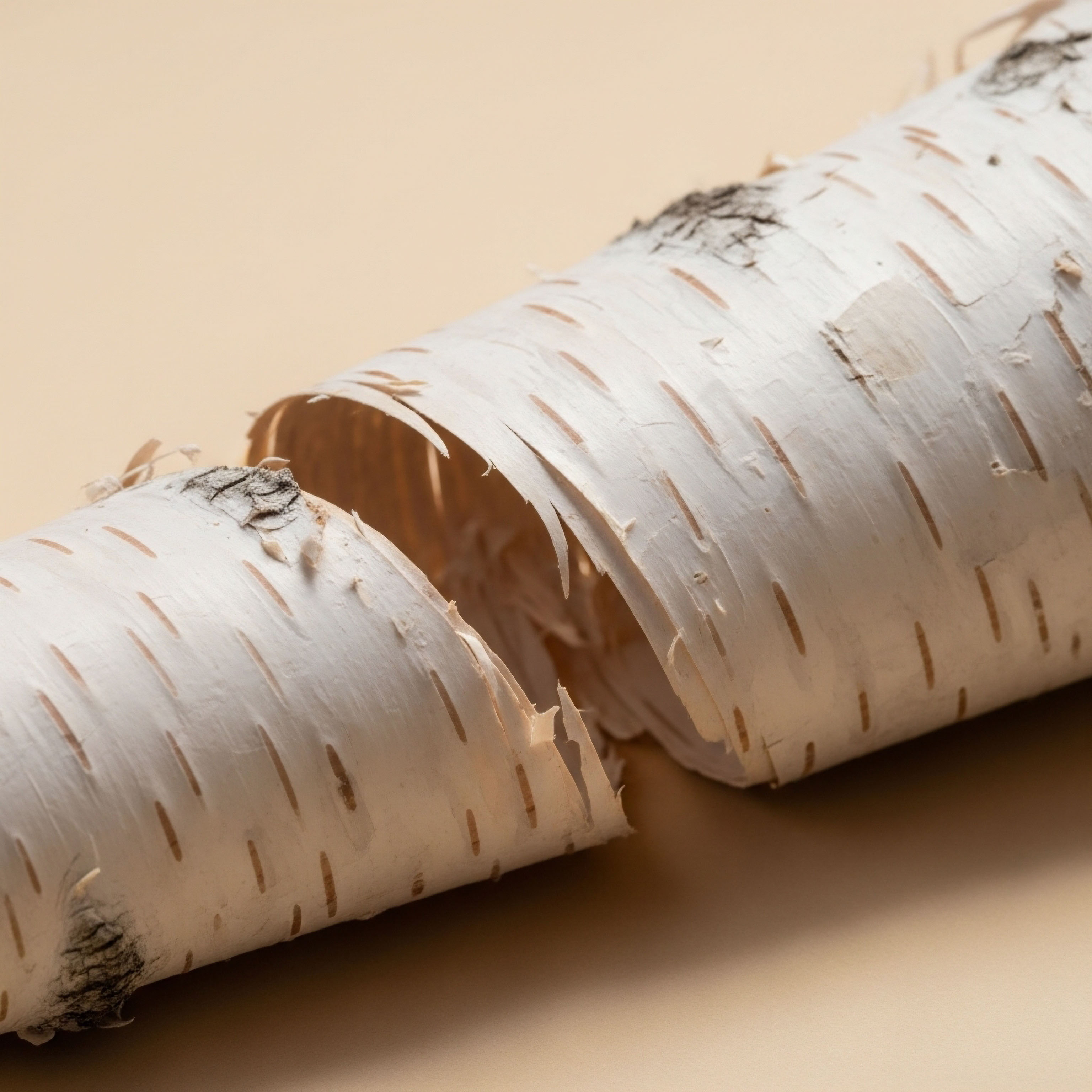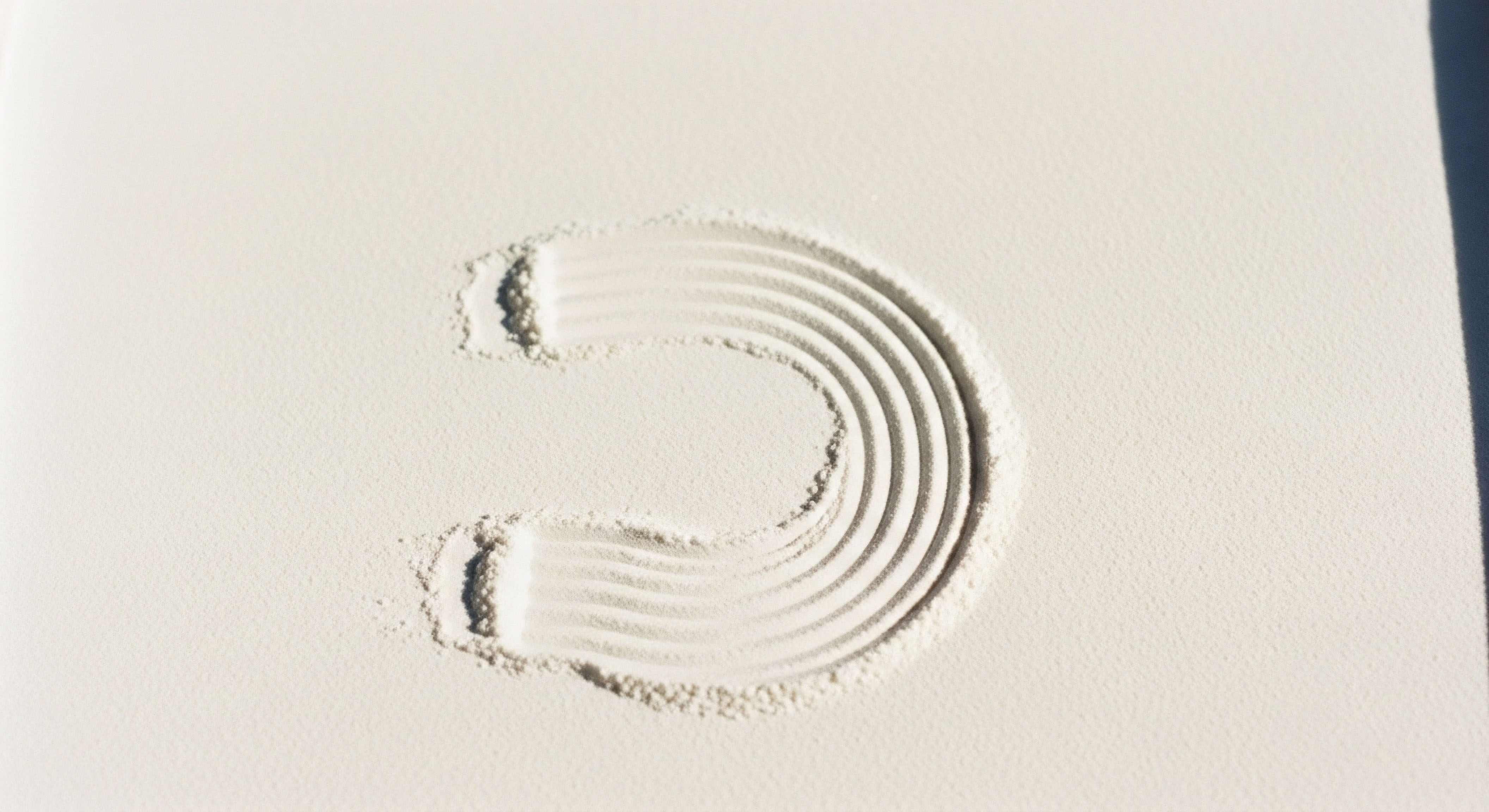

The Cognitive Crucible
Modern existence often dilutes our sharpest faculties. We navigate a landscape of constant input, persistent demands, and an ambient hum of low-grade stress. This environment erodes the mental edge, dulling focus and diminishing drive. The contemporary quest for peak performance necessitates a recalibration of our internal systems, a return to elemental forces that sharpen the mind and fortify the spirit. Cold therapy offers a precise instrument for this physiological and psychological upgrade.
The human organism, engineered for resilience, responds profoundly to deliberate thermal contrast. Immersion in cold water initiates a cascade of neurochemical and hormonal adjustments. This biological response extends beyond simple discomfort; it triggers a deep-seated adaptation mechanism. Our ancient survival instincts activate, orchestrating a symphony of internal changes designed to optimize immediate function and enhance long-term adaptability. This engagement with primal stimuli rewires the brain, forging pathways for superior cognitive output and emotional fortitude.
Cold water immersion can increase noradrenaline by 530% and dopamine by 250%, enhancing arousal, cognitive function, and mood.
Consider the immediate impact ∞ a surge of norepinephrine, the neurotransmitter of vigilance and attention. This sharpens focus, elevates mood, and ignites an inner fire. Concurrently, dopamine levels rise, fueling motivation and a sense of reward. These are not incidental effects; they represent a targeted chemical intervention, a direct infusion of the neurochemicals governing drive and mental clarity.
Regular engagement cultivates a robust internal environment where cognitive performance flourishes, moving beyond baseline function to a state of heightened awareness and unwavering presence.

The Neural Ignition
The brain operates on intricate chemical signals. Cold exposure acts as a powerful activator for key neural circuits. The sympathetic nervous system, responsible for acute stress responses, springs into action. This response is a controlled challenge, a deliberate activation that, when managed, trains the system for superior performance under pressure. The initial shock dissipates, replaced by a sustained period of elevated alertness and mental acuity. This is the physiological basis for reclaiming command over one’s cognitive landscape.

Internal Systems Optimization
The body functions as a complex network of interconnected systems. Cold therapy influences several critical axes. It impacts the hypothalamic-pituitary-adrenal (HPA) axis, regulating cortisol and stress responses. It stimulates brown adipose tissue, enhancing metabolic efficiency. Crucially, it engages the vagus nerve, a primary conduit for parasympathetic nervous system activity.
This stimulation promotes a profound sense of calm after the initial physiological jolt, building stress resilience and emotional regulation. The consistent application of cold becomes a tool for refining these internal feedback loops, ensuring they operate at their most effective settings.


Icy Protocols for Sharp Minds
Implementing cold therapy for cognitive enhancement requires precision and a structured approach. Random exposure yields inconsistent results. The deliberate application of cold, guided by scientific understanding, unlocks its full potential. This involves specific temperature ranges, immersion durations, and consistent practice. The goal remains a controlled physiological response, maximizing neurochemical release and systemic adaptation without undue strain.
The core principle involves exposing the body to water temperatures that elicit a strong, yet manageable, cold shock response. Temperatures between 45°F and 60°F (7°C to 15°C) generally achieve this effect. The duration of immersion plays a critical role. Shorter, more intense exposures deliver acute neurochemical surges, while slightly longer, moderate exposures promote deeper physiological adaptations, including vagal nerve conditioning.
Consistent cold exposure, totaling 11 minutes per week across 2-4 sessions, delivers significant health benefits.

Immersion Mechanics
Begin with a gradual introduction. Cold showers serve as an excellent entry point, conditioning the body to the sensation. Progress to full immersion in a cold plunge or ice bath. Ensure the water level reaches the neck, maximizing surface area exposure. Control your breath throughout the experience. Deep, slow exhalations mitigate the initial gasp reflex and promote a calmer state, allowing for longer, more beneficial sessions.
The precise execution of these protocols determines their efficacy. The following table provides a general framework, adaptable to individual tolerance and experience:
| Experience Level | Water Temperature | Session Duration | Frequency |
| Beginner | 55-60°F (13-15°C) | 1-2 minutes | 3-4 times/week |
| Intermediate | 45-55°F (7-13°C) | 2-3 minutes | 3-4 times/week |
| Advanced | 40-45°F (4-7°C) | 3-5 minutes | 3-5 times/week |

Breathing and Mental State
The mind-body connection during cold exposure holds immense value. Focus on diaphragmatic breathing. This deep, controlled respiration directly influences vagal tone, shifting the nervous system toward a more resilient state. Mental preparation also contributes significantly. Approaching the cold with a mindset of intentional challenge, a willingness to confront discomfort, transforms the experience into a powerful mental training exercise. This deliberate practice strengthens willpower and expands the capacity for sustained focus under adverse conditions.
- Maintain controlled breathing.
- Enter the water calmly.
- Focus on the sensation, detaching from discomfort.
- Exit when a controlled shiver begins.


Cognitive Command, on Demand
Timing cold therapy optimizes its impact on mental performance. The physiological responses triggered by cold exposure align with specific needs throughout the day, whether preparing for a demanding task or recovering from intense cognitive load. Strategic timing maximizes the neurochemical benefits, ensuring they coincide with periods requiring heightened mental acuity, emotional regulation, or accelerated recovery.
A morning cold immersion delivers an immediate and sustained boost in alertness. The norepinephrine surge provides a clean, potent energy without the jitters associated with stimulants. This sets the tone for a day of sharp focus and sustained mental output. It prepares the mind for complex problem-solving, creative work, or high-stakes presentations. The subsequent dopamine elevation cultivates a positive mood and motivation, propelling productive action.

Strategic Chill Protocols
Consider cold exposure as a pre-cognitive primer. An early morning session sharpens the senses, clearing mental fog and enhancing readiness. The sustained release of neurotransmitters continues for hours, providing a consistent backdrop of elevated function. For individuals experiencing midday slumps, a brief, targeted cold shower can reset the system, restoring mental vigor and preventing cognitive fade.
The benefits extend to stress recovery. After periods of intense mental strain, a cold plunge aids in modulating the stress response. It helps reduce systemic inflammation and promotes parasympathetic activation, accelerating the return to a balanced physiological state. This recovery protocol allows the brain to repair and regenerate, preserving long-term cognitive health. The training effect on the vagus nerve builds resilience, making future stressors less disruptive.

Adaptation and Sustained Advantage
Consistent application of cold therapy yields compounding benefits. The body adapts, tolerating cold temperatures with greater ease. This adaptation extends to the mental realm, fostering a greater capacity for discomfort and a stronger mental resolve. Over time, the internal systems recalibrate, establishing a new baseline of enhanced cognitive function and emotional stability. This sustained advantage transcends temporary boosts, establishing a permanent upgrade to one’s mental architecture.

Reclaim Your Inner Algorithm
The pursuit of an optimized existence demands tools that transcend superficial remedies. Cold therapy stands as a testament to the body’s innate capacity for self-regulation and improvement. It offers a direct pathway to recalibrating our internal algorithms, sharpening the mind, and fortifying the will.
This practice moves beyond simple wellness trends; it represents a deliberate engagement with our biological heritage, a powerful method for unlocking latent cognitive reserves. The consistent challenge of cold transforms our physiological and psychological landscape, forging a human capable of greater clarity, sustained focus, and unwavering resilience. This is the mandate ∞ master the elements, master yourself.



